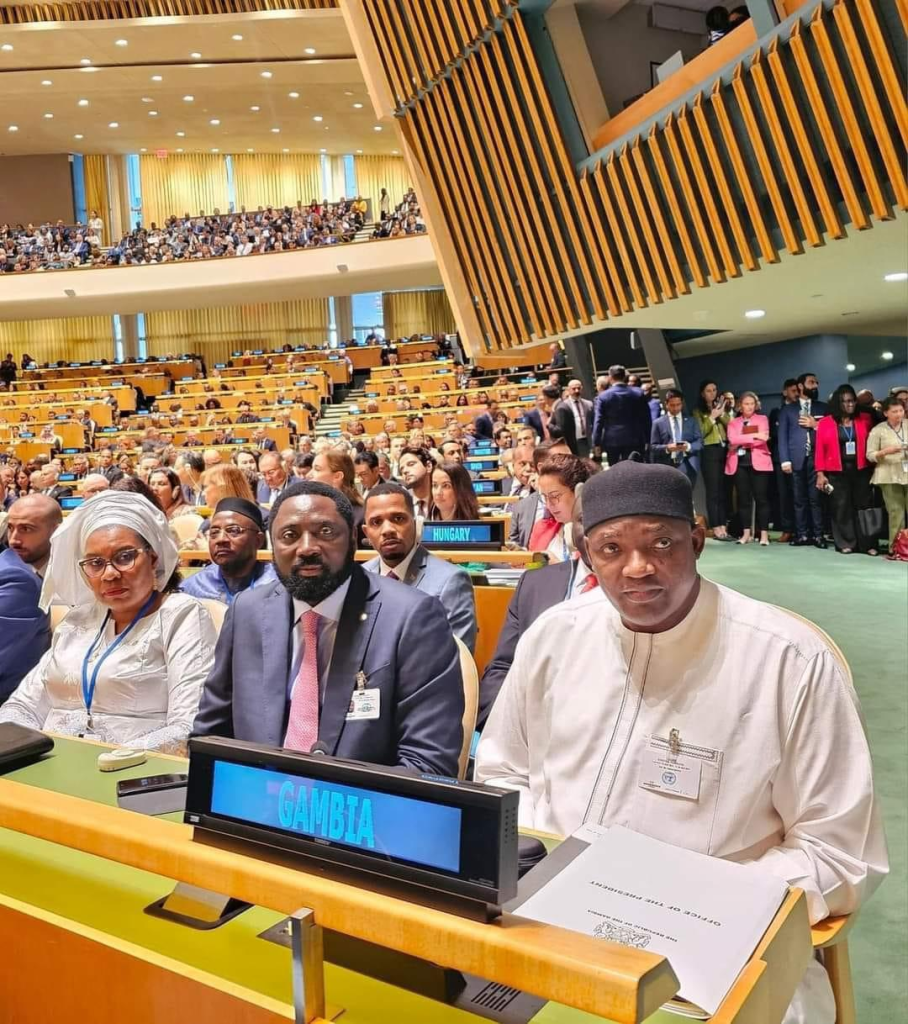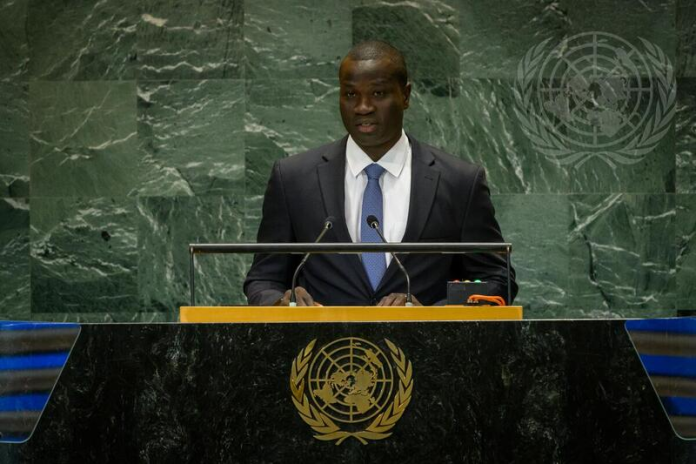
Mr. President
Excellencies
Distinguished Delegates and Participants
Ladies and Gentlemen
The Government of The Gambia expresses sincere gratitude to the United Nations
Secretary-General for convening this significant Summit, which aims to foster
sustainable multilateral solutions to advance the 2030 Agenda for Sustainable
Development and beyond. We also extend deep appreciation to the co-facilitators
from Namibia and Germany for their tireless efforts in facilitating the negotiation
processes and invaluable contributions to the preparation and execution of this
Summit.
The Summit of the Future demonstrates our collective will to strengthen
multilateralism, as it presents a significant opportunity to reaffirm our commitment
to addressing shared global challenges. As we engage in discussions on enhancing
multilateralism and transforming global governance in the coming days, let us
accelerate our commitment to reinforcing our sacred multilateral principles, of
upholding human rights, sustaining peace, and driving sustainable development.
Solidarity and respect for human dignity must underpin our collective actions and
commitments at all levels – be it regional or global. These are and should remain the
bedrock of our efforts.
The theme, “Multilateral Solutions for a Better Tomorrow,” is both timely and
relevant. It is particularly relevant at this critical moment when the world, especially
the Global South, is grappling with persistent existential challenges, including
escalating regional tensions and instabilities such as the ongoing crisis in Ukraine,
Palestine and the Sahel region have led to increased displacements of people
particularly women and children thereby further depressing the economies of
developing countries.
Mr. President,
As a developing country, The Gambia is deeply concerned about the
disproportionate impacts of global challenges on small countries, especially, the
3 negative socio-economic dimensions of the post-COVID-19 recovery efforts,
increasing climate vulnerabilities, food insecurity, poverty, and emerging health
threats which continue to exacerbate existing inequalities, pushing millions further
into poverty. Majority within this poverty bracket are women who continue to face
considerable barriers to education, economic resources, and deeply entrenched
gender norms hindering their participation in the workforce and decision-making
processes. All of these have hindered progress towards the achievement of the SDGs
and the 2030 Agenda. These challenges have stalled progress on the SDGs and the
2030 Agenda, with the deadline looming and many targets unmet. We urgently need
bold actions, comprehensive solutions, and significant resourcesl to tackle these
pressing global issues
Youths continue to face structural shortage of decent employment opportunities,
compounded by global economic uncertainties, making it challenging for
governments to tap into their potential. In our collective response to these complex
challenges, the need for multilateral cooperation with a holistic approach, built on
dialogue, common understanding, solidarity and shared responsibilities, are essential
for safeguarding global stability and ensuring that the SDGs are achievable within
this decade.
In this regard, the Government of The Gambia, with support from the United
Nations, organized a two-day National Youth Consultation to prepare a position
paper and select youth delegates in preparation for this Summit. During these
consultations, young people from various sectors emphasized the need for reforms
in the international financial system to better address their needs. They advocated
for increased access to climate funding, the development of technical skills for
climate innovation, and robust measures to close the gender gap in education and
leadership. Additionally, they called for improved internet and digital infrastructure,
enhanced human rights enforcement, and greater youth participation in political
processes to ensure equitable representation in decision-making.
Mr. President
The Gambia fully welcomes the adoption of the Pact for the Future, recognizing it
as a commitment to actionable solutions that prioritizes cognizing it as a
commitment to actionable solutions that prioritize the viability of peaceful,
4 Inclusive, and just societies. The pact is a call to action that places future generations
at the core of our concerns.
We reaffirm our commitment to strengthening international cooperation to ensure
that the goals of this Summit are realized to build a better tomorrow for future
generations.
I thank you for your kind attention.


